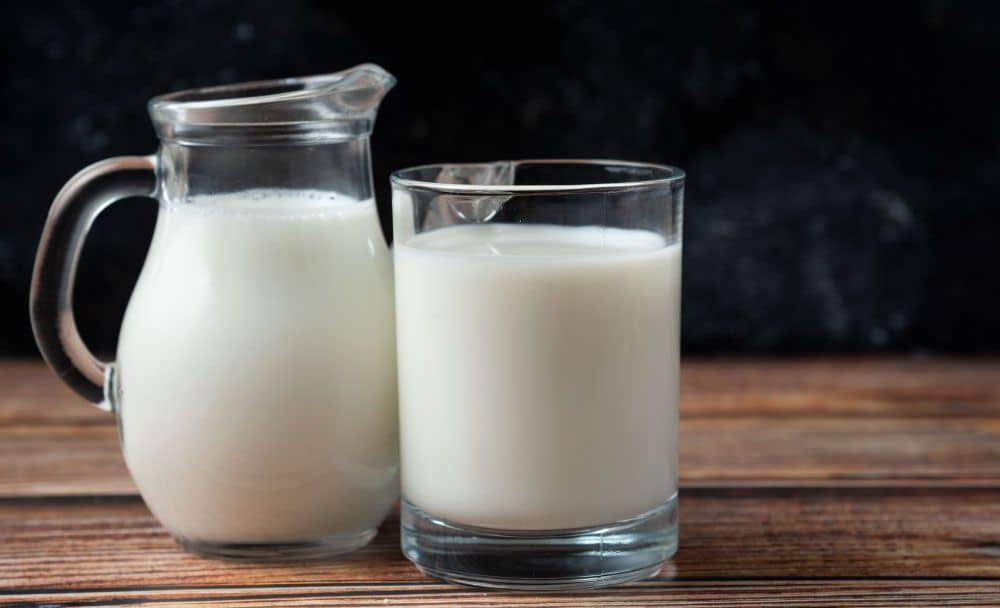
From the very first sip we take as infants, milk has remained an integral part of our lives. Among the different choices available, cow milk has long held a place of prominence. Its creamy texture, delightful taste, and undeniable versatility have made it a staple in households worldwide. But beyond its delectable appeal, cow milk boasts an impressive nutritional profile that nurtures our bodies with essential vitamins, minerals, and proteins.
Yet, like any dietary choice, examining the benefits and potential side effects is important. This article uncovers its nutritional wonders, discussing its numerous health benefits and shedding light on potential concerns.
What is cow milk?
Cow milk, also known as bovine milk, is a widely consumed dairy product derived from the mammary glands of cows. It’s been a part of human diets for centuries, providing a rich source of essential nutrients. Cow milk is known for its creamy texture and slightly sweet taste, making it a popular choice for drinking and cooking.
It is packed with nutrients, including proteins, carbohydrates, fats, vitamins, and minerals, contributing to its nutritional value. As a commonly consumed type of milk worldwide, cow milk plays a vital role in meeting our dietary needs and supporting overall health and well-being.
Cow milk nutrition
Here’s the nutritional value of 0.5-liter whole cow milk: [1]
| Name | Amount |
|---|---|
| Fat | 33 g/l |
| Protein | 32 g/l |
| Calcium | 1,1 g/l |
| Magnesium | 100 mg/l |
| Vitamin E | 0,6 mg/l |
| Vitamin A | 280 ug/l |
What are the health benefits of cow milk?
Packed with essential nutrients, cow milk offers the following advantages for our well-being.
- Quality proteins
First and foremost, cow milk is an excellent source of quality proteins, containing all the essential amino acids our bodies need to grow, repair, and maintain tissues. These proteins are crucial for promoting overall health. [1]
- Rich in calcium
Calcium is a mineral essential for developing and maintaining strong bones and teeth. Adequate calcium intake throughout life, especially during childhood and adolescence, helps reduce the risk of osteoporosis later in life. [1]
- High in vitamins
Cow milk contains several essential vitamins, including vitamin E, which reduces the risk of coronary heart disease and cancer. Vitamin E also contributes to enhancing the immune defense function. [1]
- Immune function
Another notable benefit of cow milk is its contribution to immune function. It naturally contains zinc, which helps with cell growth, replication, and DNA repair. [1]
What are the side effects of cow milk?
While cow milk offers numerous health benefits, you should be aware of the side effects. They can vary from with each individual, and not everyone will experience them.
- Lactose intolerance
One of the common side effects is lactose intolerance. It occurs when the body lacks the enzyme lactase needed to digest lactose, the natural sugar found in milk. [1]
- Milk allergy
While less common than lactose intolerance, some individuals may have an allergic reaction to cow milk. Such people may experience asthma-like symptoms. [1]
- Digestive issues
Some people may experience digestive discomfort or gastrointestinal issues after consuming cow milk, even without lactose intolerance or milk allergy. These symptoms can include stomach cramps, bloating, diarrhea, or constipation. [2]

Potential for weight gain
Cow milk is a calorie-dense beverage, primarily due to its fat content. Higher saturated fatty acids can also lead to weight gain and obesity. [1]
FAQs
- Cow milk vs. buffalo milk: Which is better?
The choice between cow and buffalo milk depends on individual preferences, cultural practices, and dietary needs. Some individuals may find cow milk more suitable due to its lower fat content, while others may prefer buffalo milk’s richness and nutrient density.
- What is the disadvantage of cow milk?
One potential disadvantage of cow milk is that it can cause adverse reactions in individuals with lactose intolerance or milk allergies. Additionally, some people may experience digestive issues.
- What are the health effects of cow’s milk?
Cow milk offers several health benefits. It is a rich source of proteins, essential vitamins, and minerals like calcium. It also provides nutrients for immune function and overall well-being.
- Is cow’s milk healthy or not?
Cow milk can be a part of a healthy diet for many individuals, as it provides essential nutrients. It is particularly beneficial for bone health, muscle development, and immune function.
Conclusion
Cow milk remains a popular beverage offering several nutritional benefits. Protein in cow milk, along with essential vitamins and minerals like calcium and vitamin E, supports overall health, bone strength, and immune function. However, it’s important to be mindful of potential side effects such as lactose intolerance, milk allergies, and digestive issues.
These side effects can vary, and it’s crucial to consult registered dietitians if needed. Understanding cow milk’s nutritional wonders and potential concerns will help you make informed choices.
Disclaimer:
The information provided here is not intended to replace professional advice or treatment.



















